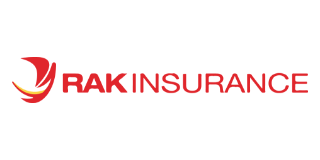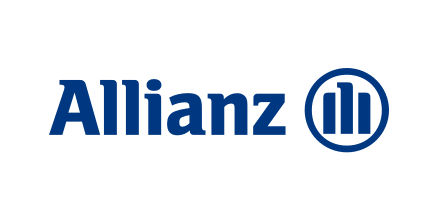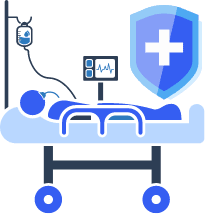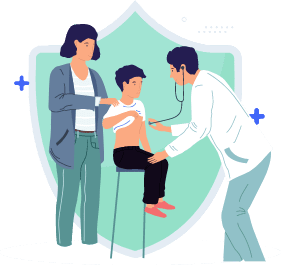- What is World Heart Day & Why is it Important?
- What Do the Numbers Show About UAE Heart Health?
- Warning Signs You Shouldn’t Ignore on Heart Day
- Simple Ways to Keep Your Heart Healthy
- How Does Health Insurance Support You on International Heart Day?
- Don’t Miss These Gaps in Your Heart Insurance
- Protect What Keeps You Going!
World Heart Day | 29 September 2025
World Heart Day is a yearly reminder to slow down and listen to what your heart might be telling you. Held every year on September 29, it's a global call to action — to eat better, move more, stress less, and get regular health checkups. Heart disease doesn't always come with warnings, which is why ...read more
Top Health Insurance Plan in UAE
















What is World Heart Day & Why is it Important?
World Heart Day is marked every year on September 29. It’s one of the most important global awareness days for health. Initiated by the World Heart Federation, this annual event (also called International Heart Day) brings people together to talk about something we often take for granted — our heartbeat.
The 2025 theme, ‘Don’t Miss a Beat’, is a powerful reminder to not ignore the signs your heart may be giving you. Whether it’s skipping routine check-ups, putting off exercise, or brushing off stress — every beat is important. This theme speaks to all of us, especially in places like the UAE, where heart disease continues to rise due to busy lifestyles, poor diets, and limited awareness.
Disclaimer: The information on this page is for reference purposes only. Please consult a qualified medical professional for any queries or health concerns.
What Do the Numbers Show About UAE Heart Health?
When it comes to heart health, the UAE faces serious challenges. As per recent studies, cardiovascular disease (CVD) accounts for nearly 40% of all deaths in the country, making it the leading cause of mortality.
Several lifestyle-related risk factors are widely prevalent across both Emirati and expat communities. Obesity, high cholesterol, diabetes, and high blood pressure top the list. According to the UAE Ministry of Health and Prevention (MoHAP), nearly 1 in 4 adults in the UAE suffers from high blood pressure. In fact, many people are unaware of their condition until complications arise.
Urban lifestyles in the UAE often mean long working hours, diets high in sugar and fat, limited physical activity and chronic stress — all of which increase the risk of heart disease. Smoking, including shisha use, adds to the problem. That’s why World Heart Day awareness and International Heart Day campaigns are so important — they help spark the conversations and actions we tend to delay.

Warning Signs You Shouldn’t Ignore on Heart Day
Your heart usually speaks in silence. But sometimes, it tries to warn you. Many people assume heart problems come suddenly, like a dramatic heart attack. In reality, the signs are often subtle and easy to dismiss.
Here are a few warning signs that you should not ignore —
- 🫁 Shortness of breath during rest or mild exertion
- 💢 Chest pain, tightness, or pressure, especially if it spreads to the arm, jaw, or back
- 💓 Irregular or fast heartbeat (palpitations)
- 😓 Unusual fatigue or exhaustion, especially in the morning
- 🦵 Swelling in the legs, ankles, or feet
- 🧠 Dizziness or fainting episodes
These symptoms don’t always mean something is seriously wrong. However, they should always be checked — especially if they come and go.
Simple Ways to Keep Your Heart Healthy
World Heart Day is about action. Here are five small changes that can protect your heart —
- 🥦 Eat Smart: Cut down on salt, sugar, and fried food. Choose fresh, local, and balanced meals.
- 🚶 Move Daily: A 30-minute walk can do wonders — no gym needed!
- 🚭 Quit Smoking: Whether it’s cigarettes or shisha, your heart suffers. Stop their consumption and get support, if needed.
- 😌 Manage Stress: Take short breaks, breathe deeply, and disconnect from screens now and then.
- 💤 Sleep Well: Aim for 7–8 hours. Poor sleep increases heart risk.
How Does Health Insurance Support You on International Heart Day?
On International Heart Day, it's also about understanding what your medical insurance already offers to support your heart. In the UAE, most health insurance plans cover key services like —
- 🧑⚕️ Consultations with cardiologists and specialists
- 🧪 Diagnostic tests like ECGs, stress tests, and lab work
- 💊 Prescribed medication for managing high blood pressure or cholesterol
- 🏥 Emergency treatment for heart attacks and chest pain
- 🧘♀️ In some cases, chronic disease management and cardiac rehab.
If your plan falls under MoHAP or DHA, you may already be entitled to basic cardiac coverage. But always check your TOB (Table of Benefits) to confirm details.

Don’t Miss These Gaps in Your Heart Insurance
On this World Heart Day, it’s not just your health you should check — your insurance deserves a review too. Many people assume they’re covered for heart-related problems, but there are often gaps that only become visible in an emergency.
Listed below are some blind spots to look out for in your policy —
- 🫀No clear cardiac coverage: If ‘cardiac care’ or ‘heart disease’ isn’t mentioned directly in your policy, confirm with your provider. Some basic plans don’t include diagnostics like ECGs or stress tests.
- 💊Low medication limits: Long-term meds for cholesterol or hypertension may have annual caps or require pre-approvals. This matters if you're managing a chronic condition.
- 🏥Rehab not included: After a cardiac event, physiotherapy or home care is often needed. Check if your plan covers post-treatment rehab sessions.
- 🔍Screenings not covered: Some policies only cover treatment after diagnosis. Preventive care like blood tests, heart scans, or doctor consultations may not be included unless you upgrade your plan.
- 🌍No global heart day support: If you travel often, your plan should include international emergency care. Not all policies offer global protection — despite the name.
This International Heart Day, take 10 minutes to go through your health insurance policy. It could help you avoid major bills or even save your life.
Protect What Keeps You Going!
Most of us live life on autopilot — work, errands, screens, repeat. But your heart? It’s working for you 24/7, without asking for much. This World Heart Day, take a quiet moment to think about what it needs in return.
Whether it’s eating better, getting a simple check-up, or reviewing your health insurance — it all counts. Even one small change today can mean fewer regrets tomorrow.
And if you’re unsure where to begin with insurance, Policybazaar.ae makes it easier. You can compare plans, check what’s covered, and choose a policy that truly fits your lifestyle.
So this time, don’t just scroll past the reminders. Breathe deeply, book that check-up, and read the fine print on your plan.
More From Health Insurance
- Recent Articles
- Popular Articles















.png)


















